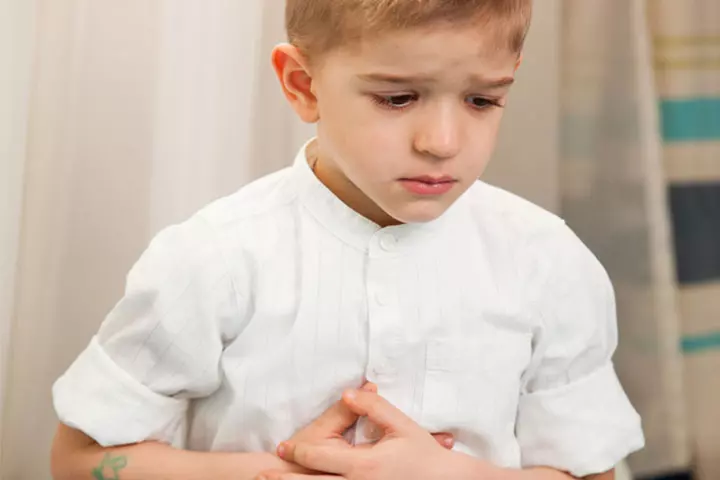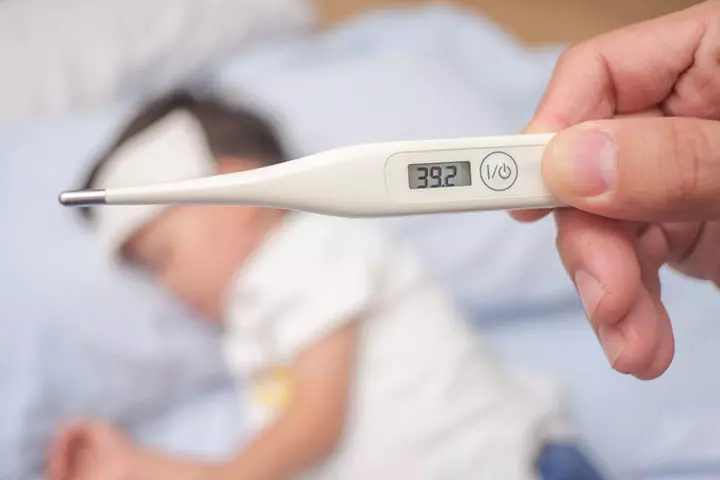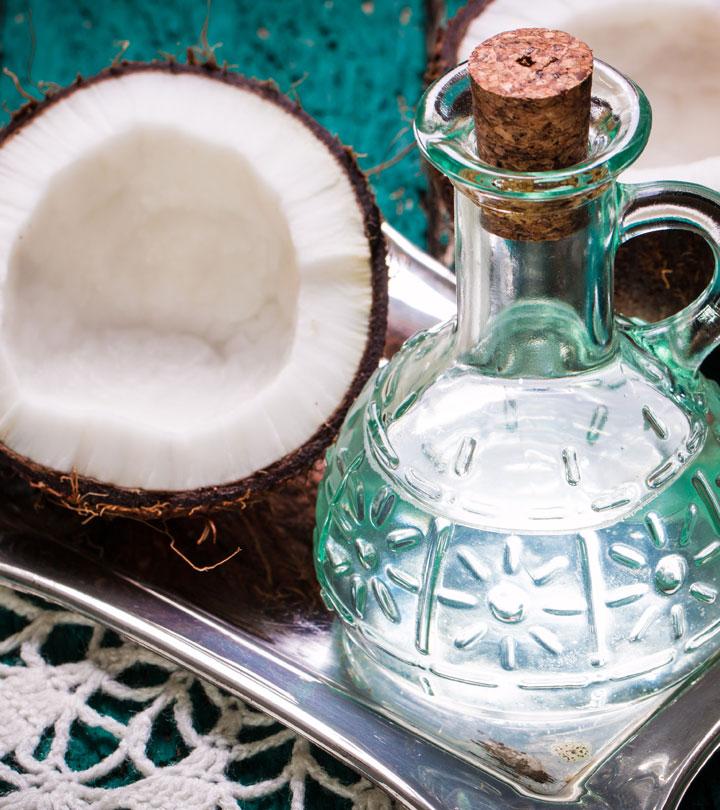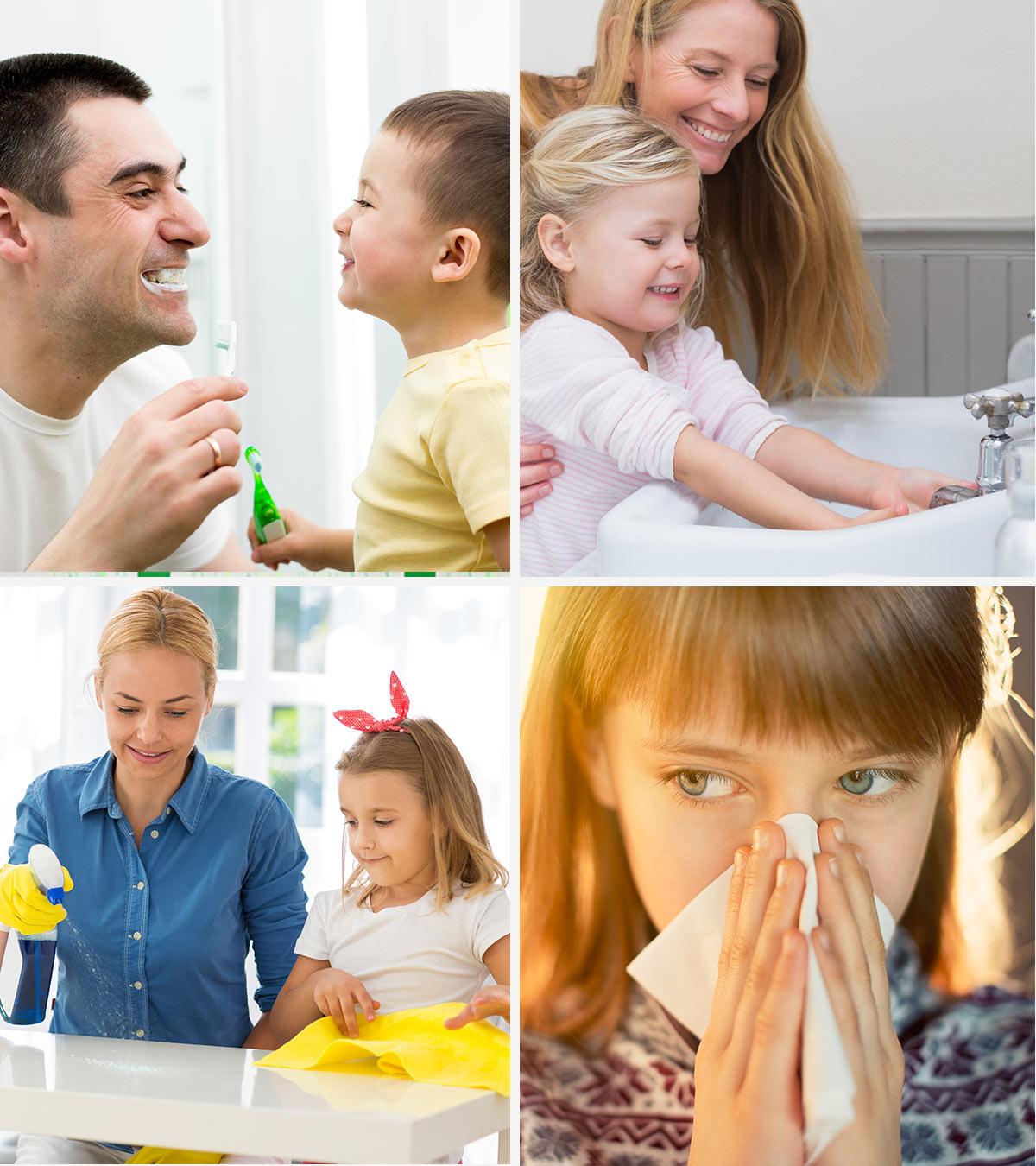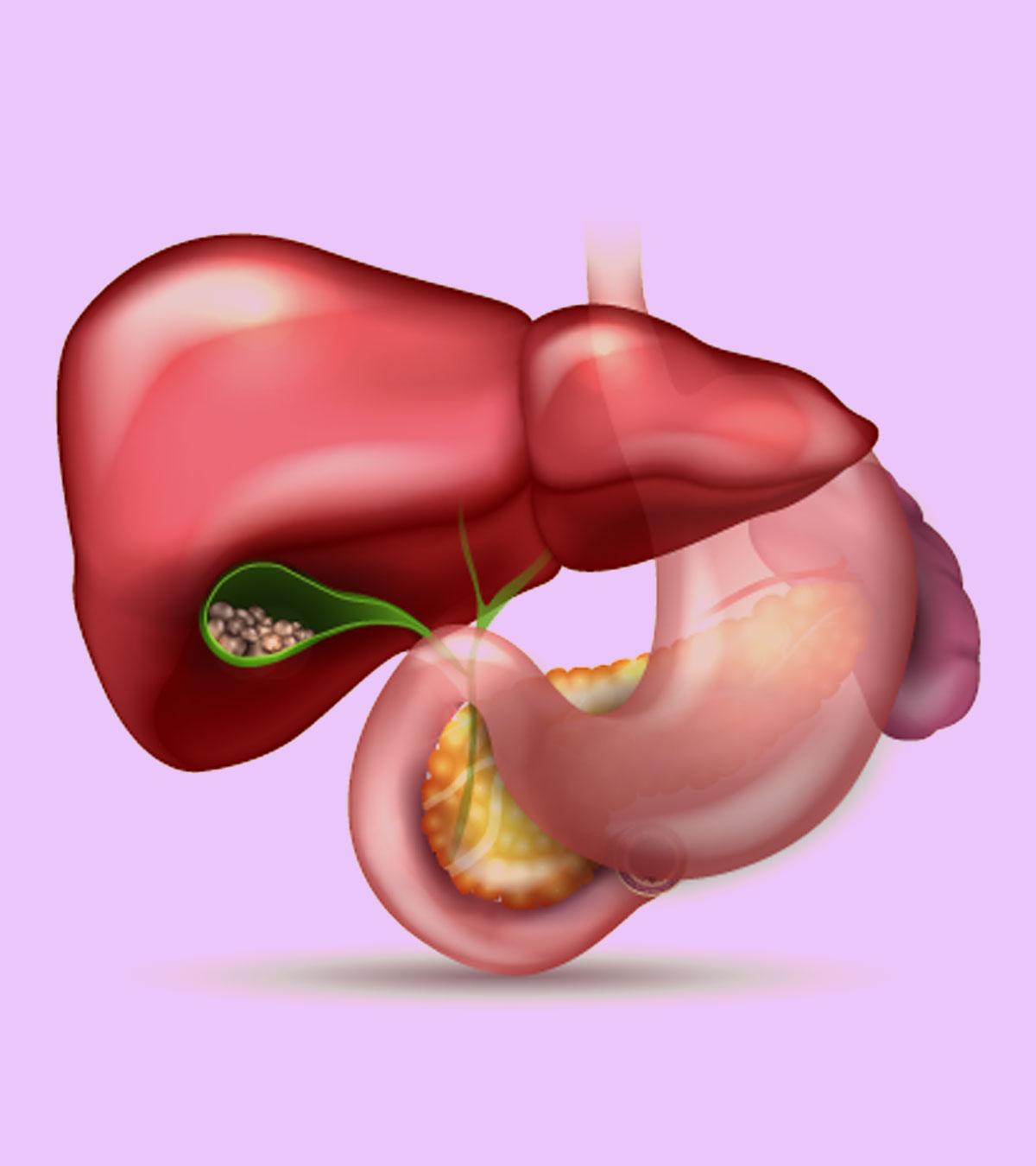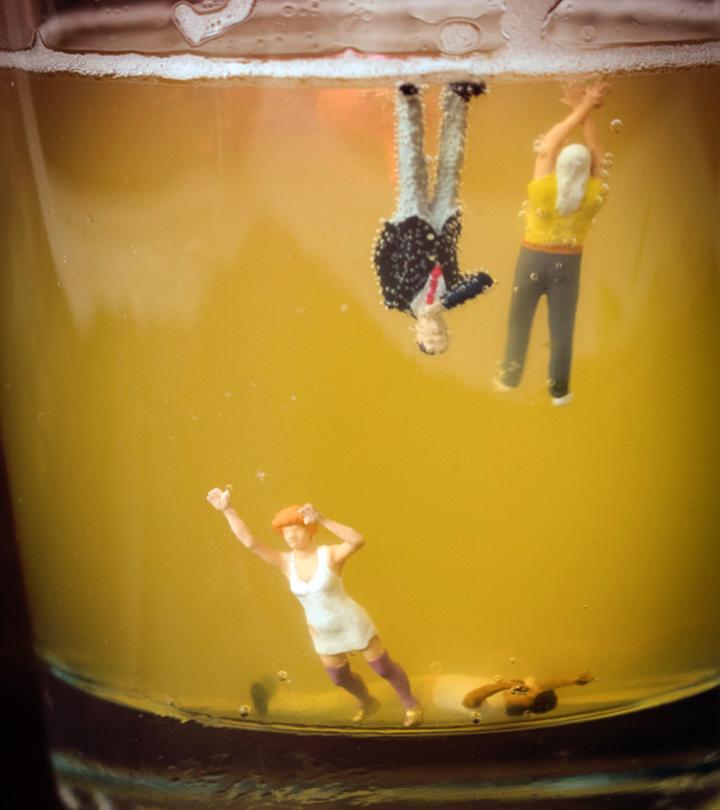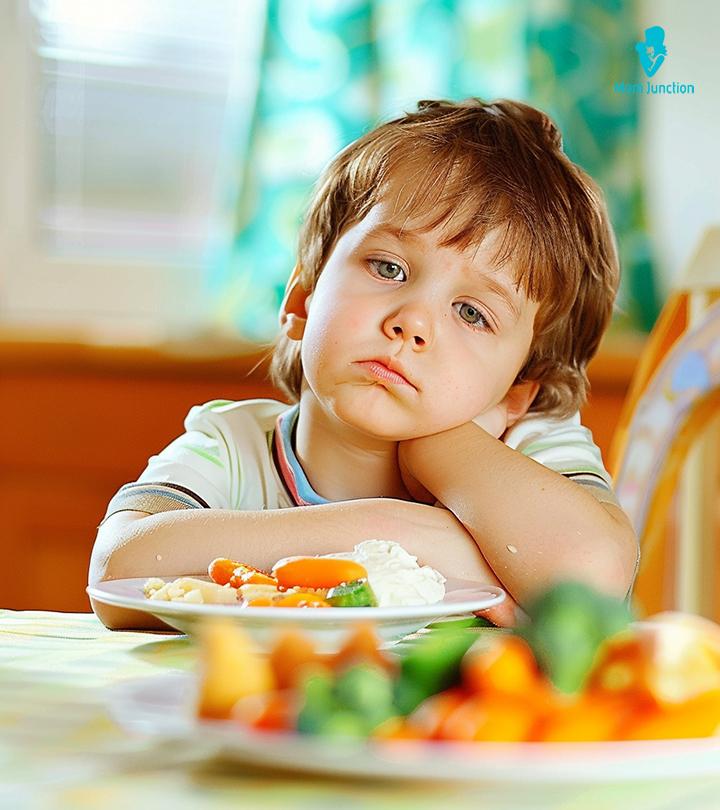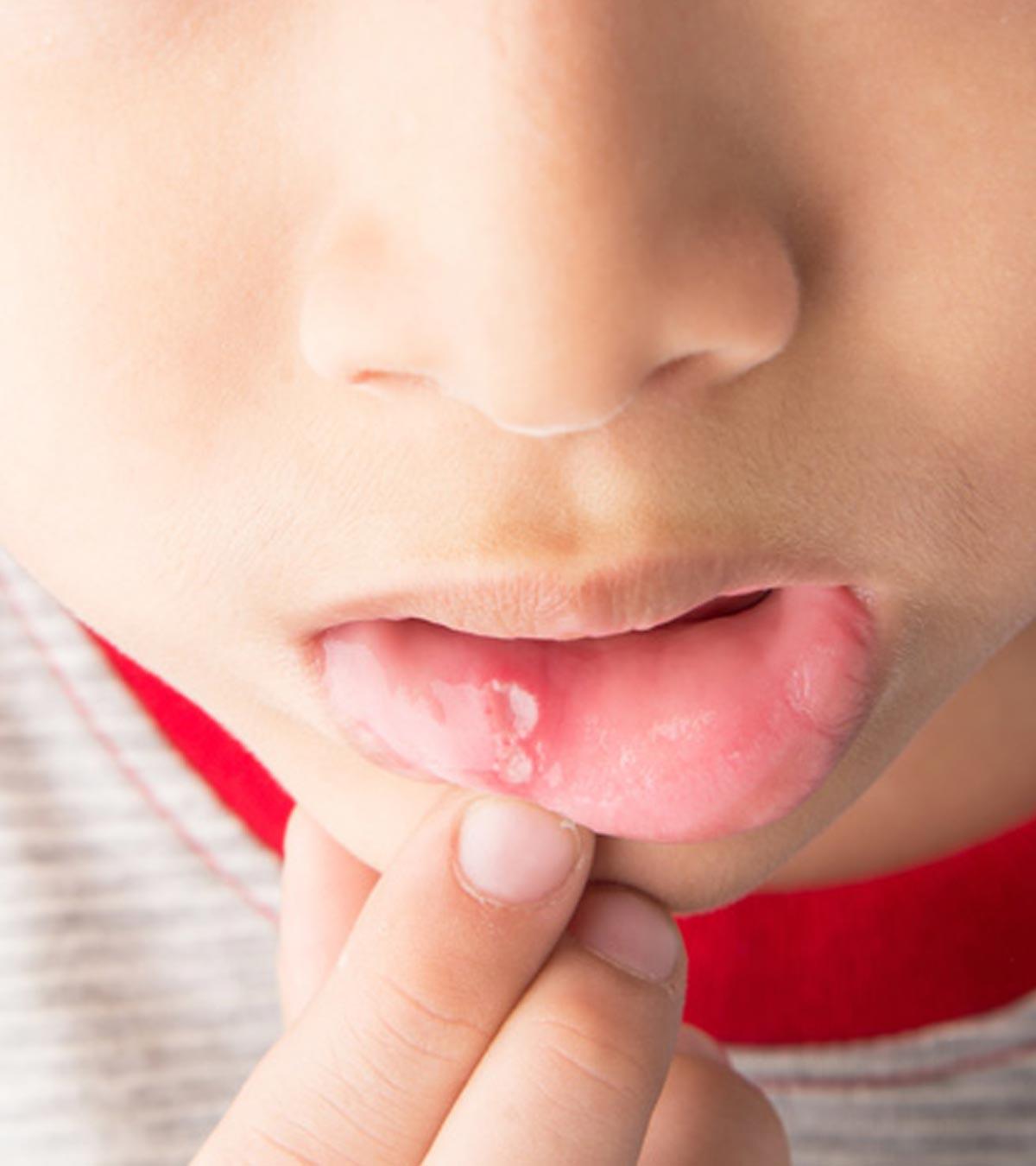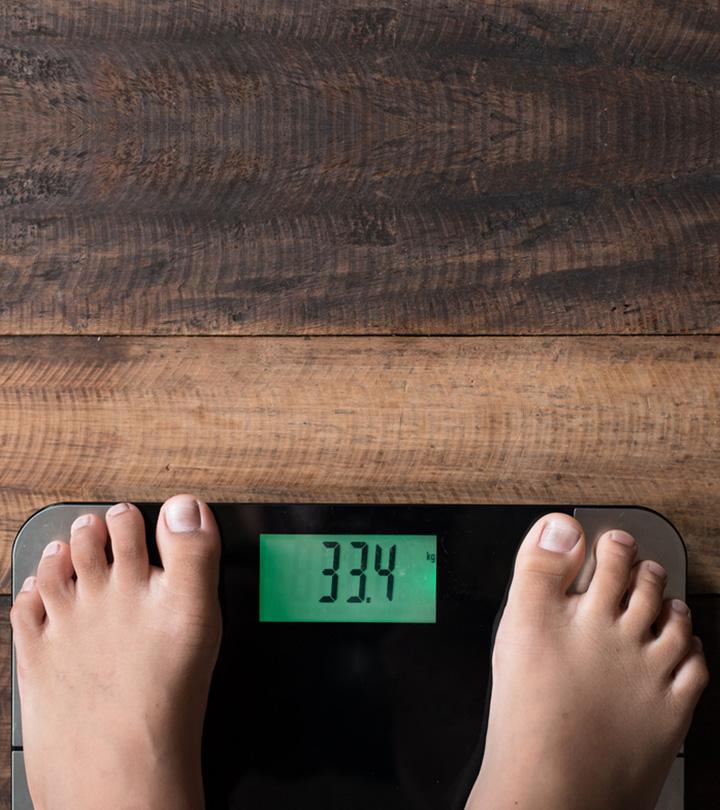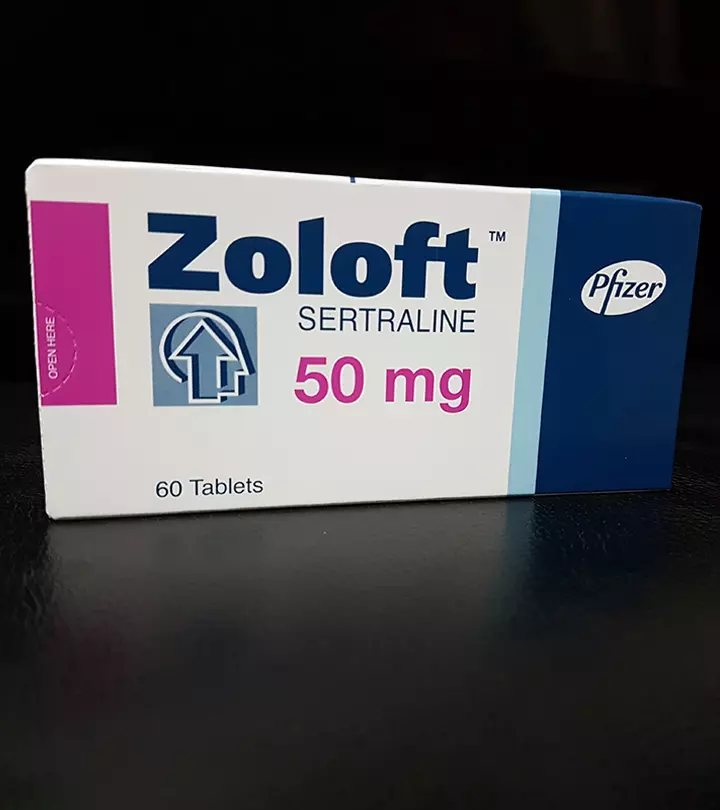
Image: Shutterstock
The brand Zoloft is the name of a generic drug, sertraline hydrochloride. The drug belongs to the selective serotonin reuptake inhibitors (SSRIs) family and is prescribed as an antidepressant (1). While administering Zoloft for kids with depressive symptoms, weighing its benefits against risks is important.
Serotonin is a neurotransmitter that transfers messages between nerve cells and induces wellbeing and stabilizes the mood. The drug increases the amount of serotonin in the brain. As a result, doctors prescribe Zoloft for treating severe depression, panic disorder, post-traumatic stress disorder (PTSD), obsessive-compulsive disorder (OCD), premenstrual dysphoric disorderiA severe type of premenstrual syndrome due to an overreaction to hormonal changes leading to irritation and anxiety , and anxiety issues.
Read on to know about the safety guidelines of Zoloft for children.
Is Zoloft Safe For Kids?
The US Food and Drug Administration (FDA) approves the use of Zoloft for treating obsessive-compulsive disorder (OCD) in children and adolescents aged 6 to 17 years (2). Children should take Zoloft only when prescribed by a doctor.
OCD is a long-term psychological disorder characterized by unwanted thoughts or images that repetitively come to the mind and cause anxiety (obsessions) along with recurrent, irresistible behavior (compulsions). For example, a child with OCD may have a constant fear of germs, leading to excessive hand-washing (3).
 Expert says
Expert saysWhat Is The Dosage Of Zoloft For Children?
Zoloft is available only upon prescription from a doctor, who decides the optimum dose for your child and may gradually increase or decrease it if necessary.
This psychiatric medication is started at a minimum dose, and based on the tolerability, the dosage may be increased weekly. It is given once daily, either in the morning or evening.
Zoloft is available as tablets containing 25mg, 50mg, and 100mg of Sertraline hydrochloride and an oral solution containing 20mg drug per mL of solution. The dosage for children and adolescents is as follows (2):
| Indication | Age | Starting dose (mg/day) | Maximum dose (mg/day) |
| OCD | 6-12 years | 25 | 200 |
| 13-17 years | 50 | 200 |
 Point to consider
Point to considerYou may dilute Zoloft oral concentrate by taking the required amount and adding it to half a cup of water, ginger ale, lemon soda, lemonade, or orange juice before offering it to your child.
What Are The Side Effects Of Zoloft In Children?
The common side effects of Zoloft include (4)
- Nausea
- Vomiting
- Dryness of mouth
- Stomach pain
- Indigestion
- Constipation
- Diarrhea
- Dizziness
- Weight loss
- Sleep disturbance
- Shaking of body
- Headache
- Anxiety
- Drowsiness
- Excessive tiredness (fatigue)
- Feeling nervous or agitated
- Excess sweating
- Decreased appetite
Contact your child’s doctor if any of these symptoms worsen.
Zoloft can also cause some serious adverse reactions. Contact your healthcare provider immediately if you notice any of these side effects in your child.
- Epileptic fitsiA Neurological condition resulting in sudden, recurrent seizures and unconsciousness
- Breathing problems
- Abnormal bleeding, such as nose bleeds
- Increased heartbeat
- Allergic reactions such as hives and rashes
- Fever, hallucination, and weakness
- Confusion
In a study conducted on children and adolescents taking sertraline (Zoloft), several adverse reactions were observed. As shown in the graph below, the most commonly reported adverse effects were headaches, appetite loss, and sweating, recorded seven, six, and five times, respectively. However, the study found no association between side effects and the dosage or concentration of the medicine.
Commonly reported adverse effects of Zoloft
Source: Therapeutic drug monitoring of sertraline in children and adolescents: A naturalistic study with insights into the clinical response and treatment of obsessive-compulsive disorder; Comprehensive PsychiatryWhat Are The Contraindications Of Zoloft?
Zoloft should not be taken if the child is allergic to Sertraline.
Some other drugs that are contraindicated to be used concomitantly with Zoloft include (2)
- SSRIs, SNRIs (serotonin-noradrenaline reuptake inhibitors), triptans, tricyclic antidepressants, fentanyl, buspirone, tryptophan precursors, and St. John’s Wort. These drugs may increase the risk of serotonin syndrome (excess serotonin in the body) and cause agitated mental states with hallucinations or coma, muscle rigidity, seizures, flushing, and changes in heart rate and blood pressure.
- Monoamine oxidase inhibitors (MAOIs) such as selegiline, phenelzine, tranylcypromine, linezolid, and intravenous methylene blue. A switch, if necessary, from Zoloft to MAOIs should be done after a minimum of two weeks.
- Pimozide, which is used to treat Tourette syndrome, as it could increase blood levels and risk of arrhythmias (changes in heart rhythms).
- Antabuse (disulfiram) used to treat alcohol addiction. Zoloft oral concentrate contains 12% alcohol, which may react with the drug.
 Be watchful
Be watchfulPrecautions To Take When Using Zoloft
Besides the brain, Serotonin affects various other tissues and cells, such as the gastrointestinal tissues, blood cells, and platelets (5). As Zoloft acts by modulating serotonin levels, certain precautions need to be exercised (2) (4).
- Inform your doctor if your child has any heart complications, bleeding disorders, or epilepsy.
- Sertraline is metabolized by the liver; thus, blood concentration may increase in the cases of liver disease. So, ensure the dose of the medication is adjusted by the doctor every week.
- The FDA suggests screening for bipolar illness or manic disorder and taking the family history for suicides, mood disorders such as depression and bipolar disorderiThe psychological condition that makes the person experience severe mood swings and behavioral changes and psychiatric disorders before administering Zoloft. Zoloft may cause manic or depressive episodes or suicidal tendencies.
- At the start of treatment, Zoloft may slow down reactions and cause sleepiness. So, be cautious when the child is riding a bicycle or doing tasks that require alertness.
- This medication should not be administered with drugs that reduce blood clotting as it increases the risk of bleeding. These drugs may include aspirin, warfarin, heparin, and non-steroidal anti-inflammatory drugs (NSAIDs such as diclofenac, ibuprofen).
- Consult a healthcare provider before the child uses any over-the-counter medication, herbal preparation, or health supplement.
- All medications should be kept out of children’s reach.
- In case a dose is missed, do not give a double dose the next day. The symptoms of overdose can be severe.
- The dropper dispenser of Zoloft oral concentrate is made of dry rubber. Make sure your child is not allergic to it.
Zoloft is an effective drug for OCD in pediatric patients. When coupled with mental health therapies like cognitive behavioral therapy, it helps improve the quality of life. However, it may take a few weeks before the full effects show; thus, do not stop the medication abruptly if no improvement is seen. Always consult with your doctor before making any dose changes.
Frequently Asked Questions
1. Can Zoloft cause aggression in children?
A study indicates that SSRIs may lead to an increase in aggression. However, increased aggressiveness is not seen in all individuals but may happen for a few. If you notice such symptoms in your children, you should contact your child’s doctor promptly (6).
2. Does Zoloft help with attention?
Zoloft is not found to affect attention negatively; however, it may improve one’s ability to process more than one piece of information at a time (7).
3. Does Zoloft cause hyperactivity?
Zoloft (sertraline) is less likely to cause hyperactivity in children when compared to other SSRIs, such as fluoxetine (8).
4. Can Zoloft be used to treat ADHD in children?
According to New York-based physician and psychotherapist, Dr. Ryan Sultan, “Zoloft (sertraline) is not specifically used for the treatment of ADHD. However, it can be beneficial for children with ADHD, particularly those with comorbid conditions like anxiety or depression, which can exacerbate ADHD symptoms. Hence, treating these coexisting conditions can improve ADHD symptoms as well.”
Zoloft for kids is usually prescribed when they exhibit certain signs of depression or stress disorders. If you notice signs of epileptic fits, hallucinations, or breathing problems in your child, contact the doctor immediately. The doctor prescribes the dosage based on the symptoms and reduces it if there is an improvement in the condition. It should be noted that depression usually leads to suicidal and other self-harming thoughts. Therefore, you should always watch your child’s activities and talk to them about their feelings.
Infographic: Are Other Medications Available For Treating OCD in Children?
OCD in children needs to be carefully assessed by a pediatric psychiatrist before any intervention begins. The doctor may prescribe drugs or a combination of medications and cognitive behavioral therapy (CBT) depending on the severity of the disorder. The infographic below lists the FDA-approved medications for pediatric OCD. Illustration: Momjunction Design Team
Key Pointers
- Zoloft or Sertraline is FDA approved to treat OCD in children above six years.
- You should give Zoloft to your child only if a doctor prescribes it.
- Dryness of mouth, gastrointestinal disturbances, anxiety, and sleep disturbances are some of the common side effects of Zoloft.
- Avoid using any OTC preparations or herbal drugs when your child is on Zoloft without consulting a healthcare professional.
Struggling with a child who’s on Zoloft for anxiety but now only sleeps 2 hours a night? Get tips on what you can do to help in this video.
References
- Sertraline (marketed as Zoloft) Information
https://www.fda.gov/drugs/postmarket-drug-safety-information-patients-and-providers/sertraline-marketed-zoloft-information - Zoloft.
https://www.accessdata.fda.gov/drugsatfda_docs/label/2016/019839S74S86S87_20990S35S44S45lbl.pdf - Obsessive-Compulsive Disorder in Children.
https://www.cdc.gov/childrensmentalhealth/ocd.html - Sertraline.
https://medlineplus.gov/druginfo/meds/a697048.html - Junhua LV and Feng Liu; (2017); The Role of Serotonin beyond the Central Nervous System during Embryogenesis.
https://www.ncbi.nlm.nih.gov/pmc/articles/PMC5346549/. - Aggressive Behavior Induced by Selective Serotonin Reuptake Inhibitors (SSRIs) During the First Month of Treatment.
https://classic.clinicaltrials.gov/ct2/show/NCT00361062 - Thomas Günther, et al., The influence of sertraline on attention and verbal memory in children and adolescents with anxiety disorders.
https://pubmed.ncbi.nlm.nih.gov/16190792/ - Antidepressants.
https://www.utmb.edu/pedi_ed/GENPEDS/ADHD/page_19.htm - Sertraline (Zoloft).
https://www.nami.org/About-Mental-Illness/Treatments/Mental-Health-Medications/Types-of-Medication/Sertraline-(Zoloft)#:~:text=To%20date%2C%20there%20are%20no,medication%20when%20used%20as%20directed. - Sertraline 50 mg Tablets.
https://www.medicines.org.uk/emc/product/7162/smpc#gref - Grapefruit.
https://hhma.org/healthadvisor/ma-grapfrui-ma/
Read full bio of Maria Carmela Villania-Mamauag
- Dr. Ryan Sultan is a professor of Pediatric Psychiatry at Columbia University and an actively practicing pediatric psychiatrist. He holds a fellowship in Child and Adolescent Psychiatry from Columbia University. His area of expertise includes ADHD, anxiety, and depression in children and adolescents.
 Dr. Ryan Sultan is a professor of Pediatric Psychiatry at Columbia University and an actively practicing pediatric psychiatrist. He holds a fellowship in Child and Adolescent Psychiatry from Columbia University. His area of expertise includes ADHD, anxiety, and depression in children and adolescents.
Dr. Ryan Sultan is a professor of Pediatric Psychiatry at Columbia University and an actively practicing pediatric psychiatrist. He holds a fellowship in Child and Adolescent Psychiatry from Columbia University. His area of expertise includes ADHD, anxiety, and depression in children and adolescents.
Read full bio of Dr. Ritika Shah
Read full bio of Vidya Tadapatri







